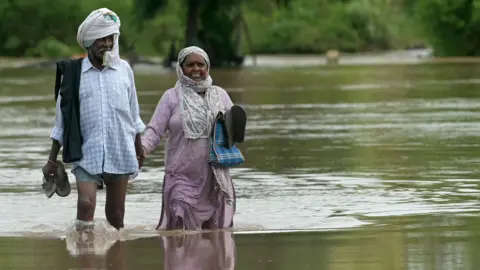An air quality health advisory has been activated for New York City and its adjoining areas due to smoke drifting from extensive wildfires raging across Canada. Announced by the New York State's Department of Environmental Conservation (DEC) and Department of Health (DOH) via social media platform X, the advisory covers regions including Long Island, the New York City Metro area, Lower Hudson Valley, Upper Hudson Valley, and the Adirondacks.
The advisory indicates the air quality in these regions is classified as "unhealthy for sensitive groups." The deteriorating conditions stem from the ongoing wildfires that have displaced tens of thousands of residents in Canada, leading to serious air quality issues throughout the northern United States. Forecasts predict that the air quality index (AQI) could exceed a level of 100 throughout much of New York State on Saturday, with potential highs of 135 in certain areas. Similar alerts have consequently been issued for parts of New England as well.
The AQI serves as a gauge for air pollution levels, with higher values indicating greater health risks associated with poor air quality. This incident isn't unprecedented; earlier in July, Chicago experienced comparable advisories as a direct consequence of the smoke emanating from the Canadian wildfires, particularly affecting vulnerable populations such as infants and the elderly.
The ramifications of the smoke have resonated as far as the U.S. Congress, where six lawmakers recently expressed their dissatisfaction in a letter to the Canadian ambassador. They voiced their concern that the hazardous smoke has hindered summer experiences for many Americans.
Currently, over 550 wildfires are blazing across Canada, with the worst situation reported in Manitoba. In total, approximately 6.1 million hectares (or about 15 million acres) have been charred throughout the nation in the previous year. May and June were notably destructive months, with local states of emergency declared following the evacuation of approximately 30,000 individuals in Saskatchewan and Manitoba.
Experts consistently attribute the increasingly severe wildfire seasons to climate change. Canada has been reported to be warming at a rate that is twice the global average, with the Arctic regions undergoing even more drastic temperature increases—nearly three times that of the global context, according to scientists.


















